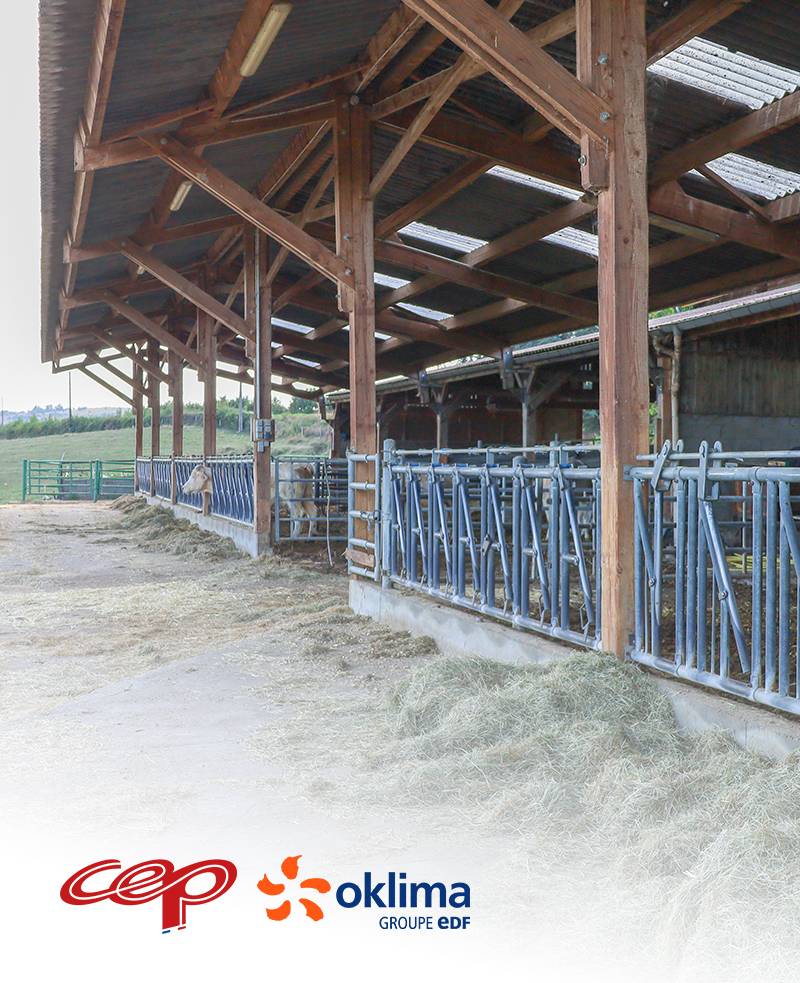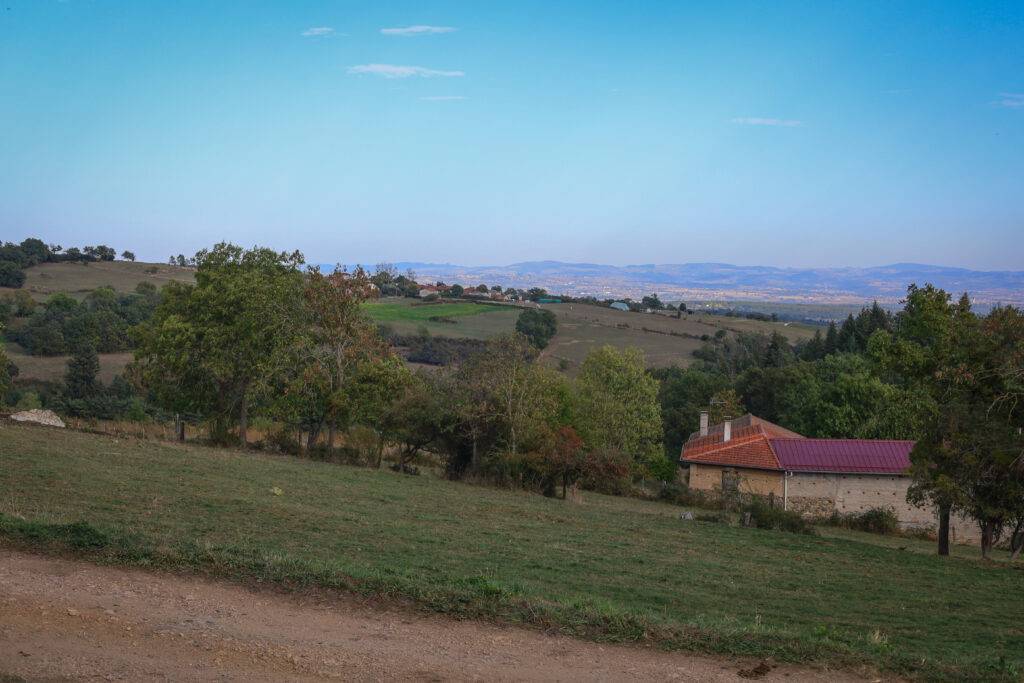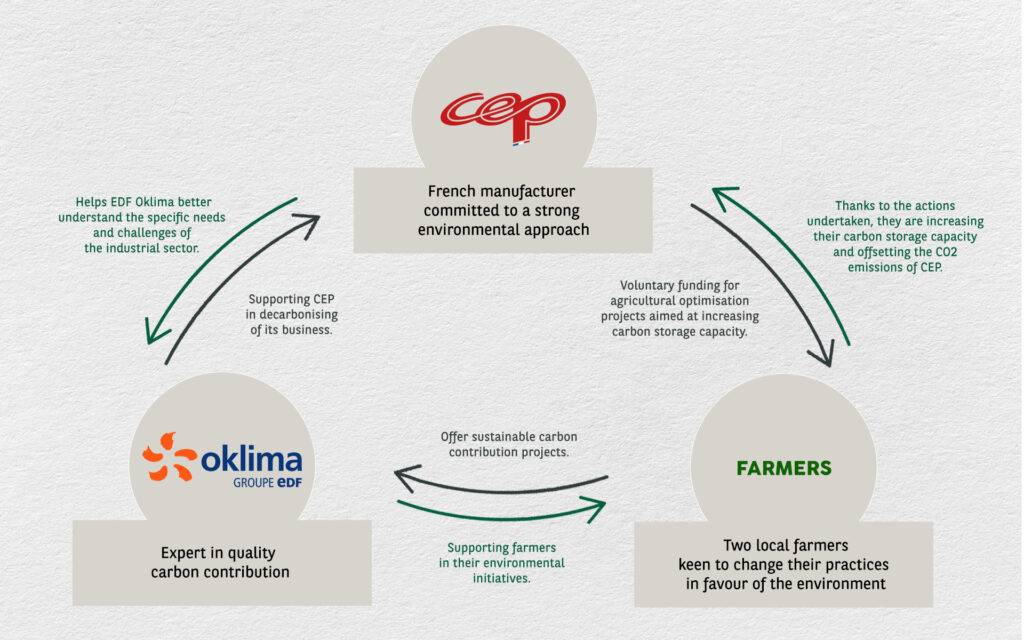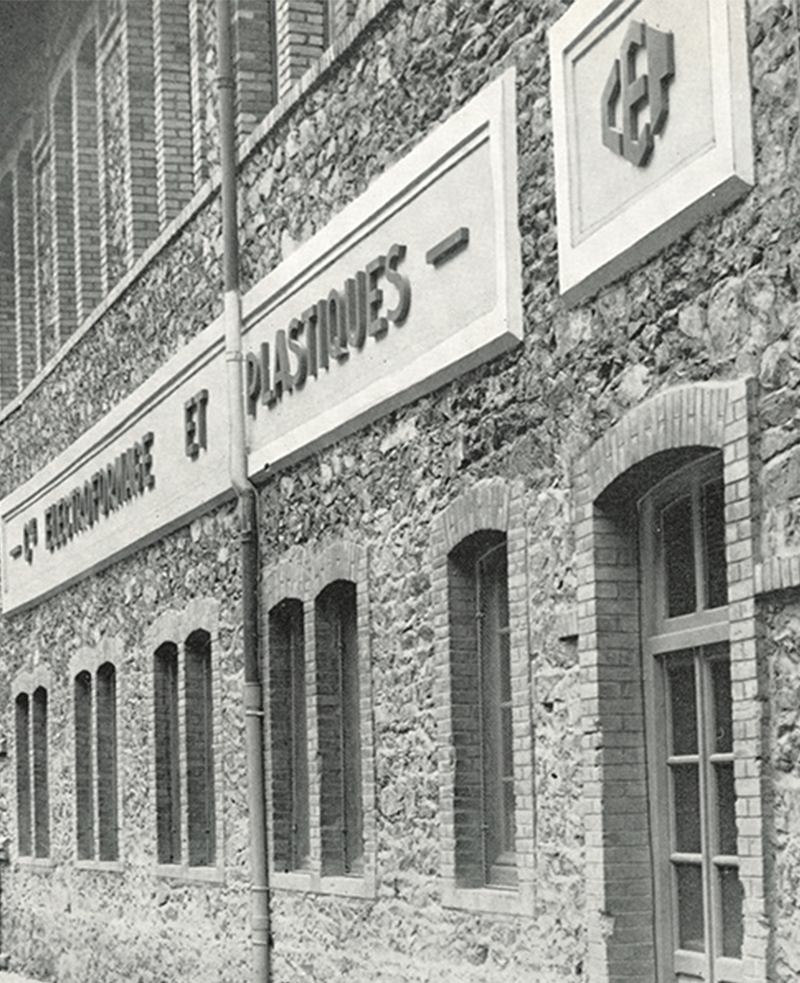
The CEP Group continues its environmental initiatives with EDF and Oklima
In line with its CSR policy, the CEP Group is confirming its commitment to building a sustainable industry. Through a responsible and local production
model, CEP has been working for many years to reduce its carbon footprint. The CEP Group has chosen to work in partnership with the electricity
supplier EDF, to support local low-carbon agricultural projects.
Towards a more sustainable future - The CEP Group perseveres in its quest to reduce carbon emissions
As a committed industrial company, the CEP Group has implemented an ERC (Evade, Reduce, Contribute) approach as part of its CSR policy. Through a number of internal actions, CEP avoids and reduces greenhouse gas emissions:
- Ongoing investment in low energy-consuming machines,
- Carefully monitored energy consumption,
- Low-water consumption manufacturing processes using a closed-circuit cooling station,
- Optimisation and reduction of inter-site logistics shuttles,
- Introduction of 4-day working weeks.
To pursue its approach, the CEP Group is now seeking to supplement its efforts to avoid and reduce greenhouse gas emissions by supporting local environmental projects.
A collaborative approach - A cooperative project between manufacturers, electricity suppliers and farmers
The CEP Group is now focusing on collaborative, responsible and environmentally-friendly electricity consumption. With the support of EDF and their subsidiary Oklima (which specialises in carbon contributions), CEP is embarking on a three-way project to reduce its environmental footprint.
Committed farmers - Setting up sustainable agricultural projects to reduce CO2 emissions
In order to offset the residual emissions generated by its activities,
the CEP Group is supporting the climate transition in agriculture by working
alongside two local farms located just a few kilometres from its production
site.
These farms are taking action to reduce their CO2 emissions. Thanks to
CEP’s support, they will be able to store more carbon in their soils.
For farmers, the path to decarbonisation lies in transforming farming
practices through:
–
Environmentally-friendly growing methods,
–
The introduction of sustainable natural resource
management programmes,
–
Implementing measures to improve the technical
management of livestock…

After 5 years of collaboration, the agricultural projects aim to remove more than:
These carbon credits will be validated by the French Ministry for Ecological Transition and awarded the Low Carbon label. This programme promotes the long-term preservation of biodiversity, improves air quality and reduces the use of fossil fuels. This project underlines the CEP Group’s determination to be a responsible and committed player in the transition to a more sustainable future. It is important for CEP to play an active role in reducing carbon emissions, while contributing to the economic vitality of local communities.
Related Posts
100 years of expertise and innovation
In 2023, the CEP Group will celebrate its 100th anniversary!
A new certification for our recycled materials product range!
Our circular economy approach highlighted by LNE certificati
CEP Office Solutions committed player to sustainable development
The CEP Group, located in the heart of the Auvergne region i






